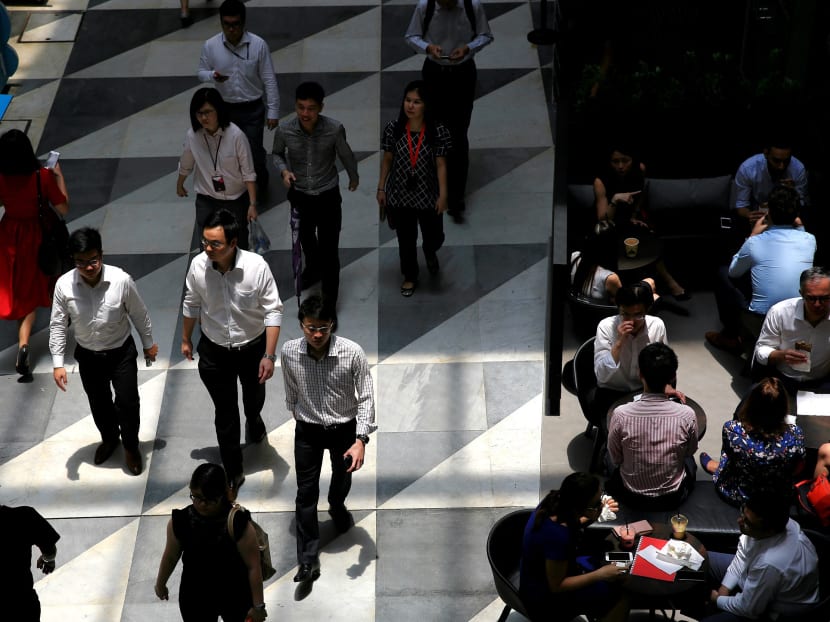Which are the 5 best-paying industries this year?
SINGAPORE — In spite of the gloomy economic conditions and expectations for slower wage growth and higher unemployment this year, individuals in certain “hot jobs” can still expect to take home pretty big paychecks, according to the latest Salary Guide by recruitment firm Kelly Services.
SINGAPORE — In spite of the gloomy economic conditions and expectations for slower wage growth and higher unemployment this year, individuals in certain “hot jobs” can still expect to take home pretty big paychecks, according to the latest Salary Guide by recruitment firm Kelly Services.
Topping the chart for this year’s highest-paying jobs in Singapore are the information technology (IT), accounting, sales and marketing, banking and finance, and the healthcare and life sciences sectors.
Demand for talent in these five sectors is expected to remain strong in part thanks to concentrated Government efforts to develop those industries.
Technology heads with 14-20 years of experience can expect to command between S$13,000 and S$24,000 a month this year, while business development senior account directors with 11-20 years of experience and financial technology developers with 5-10 years of experience in the IT Industry can expect to command salary ranges of S$12,000 to S$22,000 and S$7,500 to S$12,000 respectively.
“Despite the challenges in the global economy, bright spots remain in the financial technology, big data, as well as digital marketing sectors where demand for talent will continue to rise throughout 2016,” said Mr Foo See Yang, vice-president and country general manager of Kelly Services Singapore. “Professionals, managers, executives and technicians who have been hit hardest by the slowdown should look at upskilling and expanding their capabilities into new areas of growth to stay relevant.”
Last month, the central bank said in its twice-yearly Macroeconomic Review report that overall resident wage growth is expected to slow to 2.5 to 3 per cent this year, from 3.5 per cent in 2015, while jobless numbers are also likely to edge up alongside weak cyclical conditions and in sectors facing weak external demand and undergoing restructuring.
Overall, the median monthly income in Singapore is expected to be S$3,798, a 6.5 per cent increase compared to a year ago, noted Kelly Services on Wednesday (May 4). Despite the uncertain economic situation, the unemployment rate is expected to remain healthy at 1.9 per cent, it added.
“We can also expect employers to take a conservative approach and turn to temporary and contract staffing arrangements to fulfil manpower requirements,” said Mr Foo. “There is a need for a mindset shift by the Singaporean workforce to look beyond permanent roles.”
In a separate survey the firm referenced on Wednesday, 77 per cent of employees cited work-life balance as an important consideration in deciding where to work.
“Employers need to place more value in designing HR policies to allow workplace flexibility,” said Mr Foo. “This is especially important now as salary increments are expected to be muted in the upcoming year.”
Factors identified by respondents include: Flexible work schedules and arrangements such as working remotely or telecommuting (70 per cent), limitations on working outside typical business hours (51 per cent), wellness programmes such as on-site fitness centres, health club memberships and stress-reduction programmes (41 per cent) and a fostered environment of friendships in the workplace (36 per cent).
The workforce is increasingly looking to “design” the perfect balance between their personal and their professional lives, said Kelly Services.







